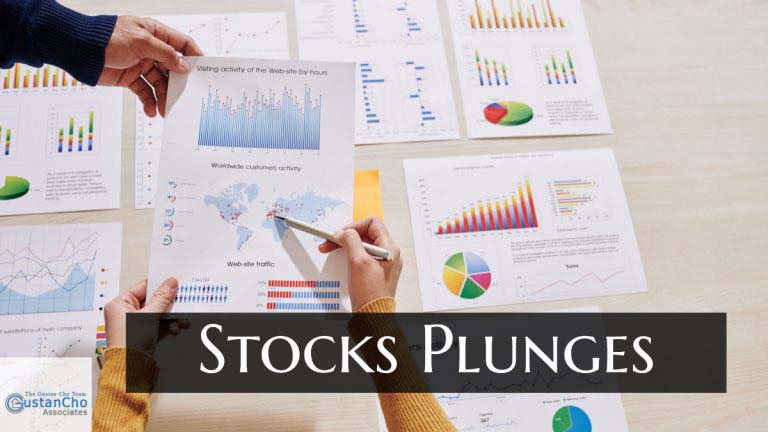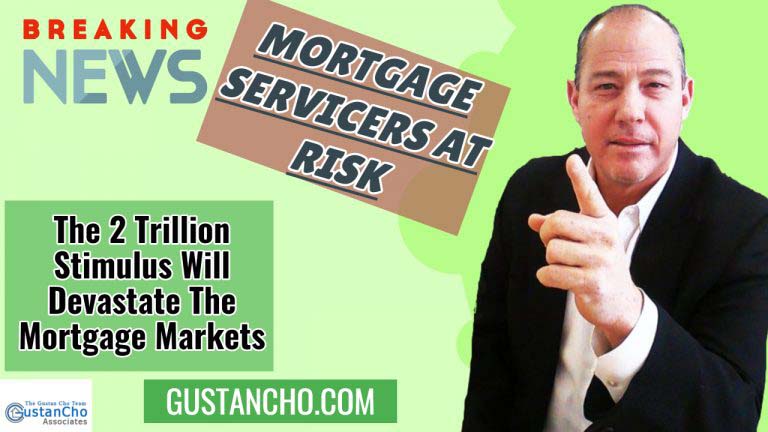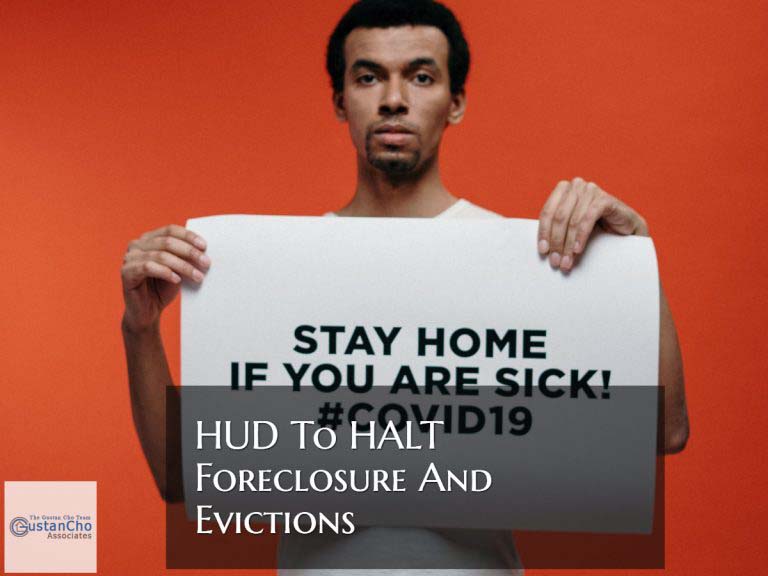Breaking News: Housing Market During Pandemic Expected To Remain Strong
There is no doubt that the Housing Market During Pandemic got hurt like all other industries.
- Over 30% of our borrowers who were fully qualified and pre-approved at Gustan Cho Associates suspended their home shopping process until further notice
- Housing Market During Pandemic decreased at all levels
- Buyers suspended the home buying process due to major concerns with their job security
- Over 26 million Americans have filed unemployment claims in the past four weeks
- Unemployment numbers are supposed to skyrocket in the coming weeks
- Sellers are afraid to list their homes due to concerns about the Housing Market During Pandemic
- Many buyers and sellers were afraid of a housing market crash worse than the 2008 financial crisis
The whole U.S. economy has shut down due to the coronavirus pandemic that hit our country a couple of months ago.
The Economic Crash Due To The Coronavirus Pandemic
Never in history has the economy plummeted in a matter of weeks:
- The U.S. economy was stronger than ever prior to the pandemic
- The 2020 housing market was expected to be the best ever
- Then the pandemic hit the U.S.
- The economy was at a standstill for weeks
- However, most state governors announced their states will reopen in the coming days and weeks
- This is great news
- The key question is how long will it take for the economy to recover
- Will it take weeks or months?
- Regardless, most economists are confident the Housing Market During Pandemic has been strong and will become stronger when the economy reopens
In this breaking news article, we will discuss and cover Housing Market During Pandemic Expected To Remain Strong.
Housing Market During Pandemic Was Stronger Than Expected
Housing and mortgage industry experts unanimously agree the Housing Market During Pandemic was better than expected. It could have been worse.
- The entire housing and mortgage markets could have been shut down
- However, the government classified real estate and lending as an essential business
- There is no doubt the home buying process and the lending process has been difficult
- However, deals got closed
- Realtors and loan officers, as well as third-party real estate professionals, got the closing process on real estate transactions to proceed and closed
- The coronavirus pandemic is not over
- We will be approaching another week of uncertainty
- Most individuals are still in shock and want to get back to work and normalcy
- The good news is the pandemic has stabilized in most states
- The peak has been reached and there are fewer cases as time passes
- The governor of Georgia announced the reopening of their state
- Other states are planning on reopening in the coming days
- New York, the highest impacted state, is finally seeing a reduction of cases from its peak
- However, New York is still far from reopening
- The Trump Administration is holding daily news conferences to keep Americans informed and to avoid a national panic
- President Trump’s coronavirus task force has done a great job keeping Americans informed on developments
- The economy and the housing industry has been really affected by the pandemic
- President Trump and all Americans cannot wait for the economy to reopen and return to normalcy
The trillion-dollar question is how long will it take for the economy to return to normalcy.
White House Help To The Housing Market During Pandemic
The major difference between the 2020 coronavirus pandemic economic crisis and the 2008 Great Recession is President Trump. President Donald Trump and his administration have been extremely proactive and transparent during the pandemic. Included in the $2.2 trillion stimulus package was $1,200 checks for individual taxpayers, $2,400 for married couples, and $500 for dependents under the age of 17 and younger. Included in the $2.2 trillion coronavirus stimulus package was mortgage forbearance options for homeowners that have been financially impacted by the pandemic. Over 25% of homeowners are expected to take advantage of the forbearance law. There was no such forbearance relief during the 2008 financial crisis. The coronavirus forbearance law is expected millions of homeowners from foreclosure and/or bankruptcy. Michael Gracz of Gustan Cho Associates is the National Sales Manager at Gustan Cho Associates and an associate contributing editor at Gustan Cho Associates.
The worldwide estimates for positive people tested for COVID-19 are close to 2.0 million. As of yesterday, there are a total of 487,000 cases of people confirmed with coronavirus. The number of cases is getting lower as time passes. This is great news. It seems the worst of the pandemic is over. President Trump and the nation’s 50 governors are now monitoring when the economy should open. Nobody yet knows the actual damage the pandemic has done to the U.S. economy and how long it will take to recover. Many economists and experts say that many closed businesses will not reopen and many unemployed and/or furloughed employees may not get their jobs back.
Taking Advantage Of Coronavirus Mortgage Forbearance
Homeowners need to understand that a mortgage forbearance is not a forgiveness of missed payments. It either needs to get paid back in full when the term is over or many lenders will spread out the missed payments over a term of six to twelve months. Interest will still accrue during the missed payment period. Escrow shortages also need to be made up. Missed payments on forbearance will not report on credit bureaus.
Non-QM Housing Market During Pandemic
Non-QM loans are a large part of the housing market.
- When the coronavirus pandemic hit, it affected non-QM lenders like getting struck by a freight train
- All non-QM lenders have suspended doing business altogether
- All non-QM borrowers who had pre-approvals, conditional approvals, mortgage locks, and clear to close were stuck and had their loan process null and void
- The impact of the pandemic was so strong that many non-QM lenders like Deephaven Mortgage went out of business
- Other non-QM lenders suspended all operations until further notice
- The reason non-QM lenders got hit so badly is due to the instant change in liquidity issues on the secondary mortgage bond markets
- Mortgage bond buyers no longer wanted lower credit profile mortgages until further notice
- The great news is Gustan Cho Associates continues to originate, underwrite, and fund non-QM mortgages
- Gustan Cho Associates expects non-QM loans to return
- However, changes will be made with new stricter credit score requirements, larger down payment, and lower debt to income ratios
The Housing Market During The COVID-19 Lockdown has been very active. Many analysts and economists predicted another housing meltdown. Some even have predicted a real estate meltdown worse than the 2008 financial crisis. Turns out the Housing Market During The COVID-19 Lockdown has been very active.
Builders have been very busy building new homes. The coronavirus pandemic has turned the mortgage industry upside down. Most lenders have increased lending requirements due to liquidity issues on the secondary mortgage bond markets. Investors had no interest in buying mortgages from borrowers with under 700 credit scores. Mortgage servicers were worried about going bankrupt due to the CARES Act enabling unemployed homeowners to be eligible for forbearance.
Forbearance Under The CARES ACT
Borrowers under forbearance get a reprieve for a period of time from paying their mortgage payments: However, mortgage servicers still need to make mortgage payments to investors of mortgage-backed securities. Servicers also need to make payments on property taxes and insurance for borrowers who have an escrow account. A small percentage of forbearance, servicers can handle it.
Over 43 million Americans have filed unemployment claims in the past 10 weeks. If a flood of homeowners files for forbearance, servicers will go bankrupt unless they get a federal bailout. The forbearance mortgage program was another concern for analysts expecting a 2020 housing market meltdown. However, with the economy reopening and unexpected news that 2.5 million new jobs were being created, it seemed the U.S. economy is stronger than ever. No doubt the economy will recover faster than anyone has expected. The housing market seems like it will be stronger than ever despite the COVID-19 pandemic.
In this breaking news article, we will discuss and cover the Housing Market During The COVID-19 Lockdown Has Been Active.
Housing Market During The COVID-19 Lockdown Expected To Crash
The U.S. economy was thriving and booming prior to the coronavirus pandemic. Then in March, the U.S. economy was shut down. The economic lockdown in the Nation affected millions of businesses. All non-essential businesses were ordered closed until further notice.
Millions of businesses were closed. Tens of millions of Americans were out of work. The Trump Administration implemented the CARES Act which included stimulus money for businesses and individual taxpayers. Over 43 million Americans filed unemployment claims.
Never in history has the unemployment claims been so high.
High Unemployment Means Poor Housing Market
Economists and experts were predicting unemployment rates up to 25% unemployment by the end of the year.. Analysts were also predicting another housing market crash worse than the 2008 financial crisis. Due to the liquidity issues on the secondary market, most lenders increased their lending requirements on government and conventional loans. Many lenders were not interested in taking loan applications from borrowers with under 700 credit scores. Borrowers with under 700 credit scores were quoted very high rates and had to pay discount points
Many borrowers who were pre-approved prior to the pandemic were no longer pre-approved because lenders increased credit standards due to the coronavirus pandemic. Most lenders have stopped and/or halted many loan programs. Non-QM loans were suspended until further notice. Most lenders have stopped doing FHA and VA manual underwriting. FHA 203k loan programs were halted by most lenders
Lenders stopped doing down payment assistance mortgage programs. FHA and VA One-Time Construction Loans were suspended until further notice.
The Recovery Of The U.S. Economy And Economic Data Shows Promising
Many states started reopening starting May 1st. However, several states like Illinois were pushing to extend their stay-at-home order until a later date. This drew protests and lawsuits from residents, business owners, and local politicians. People were upbeat about going back to work and start shopping. The housing market has been very active during the pandemic.
Many homebuyers have been eagerly shopping for homes during the coronavirus lockdown. As mentioned earlier, the large unemployment numbers and claims are a sign of a poor housing market. However, there have been steady increases in home sales and mortgage loan applications during the lockdown. Homebuilders are enjoying record sales during the pandemic.
Housing Market During The COVID-19 Lockdown And Home Sales And Mortgage Industry Are Booming
Mortgage applications for home purchase loans at Gustan Cho Associates have been skyrocketing for the past 7 weeks. Due to the flood of mortgage loan applications on home purchases, Gustan Cho Associates turn times on refinances are now at 60 days. Most of our loans at Gustan Cho Associates used to close in less than 30 days. Due to the increase in loan volume, we had to hire three additional mortgage underwriters and four processors. In general, the housing market cannot skyrocket with over 43 million Americans filing unemployment claims.
Housing Market Forecast
Analysts were expecting a loss of 7.5 million jobs in May. However, the job numbers last Friday came in at 2.5 million new jobs created. This sent stocks soaring. The Dow Jones Industrial Average is now nearing 28,000. The all-time high on the Dow was 29,000 just last February. The Dow Jones plummeted to 18,000 just a few weeks ago. Home prices have been increasing year after year. Many homebuyers were expecting a housing market crash during the coronavirus pandemic. However, from the look of things, it seems the housing market is going to keep on rising. The demand in homes remains strong for 2020. This holds true even with the pandemic. From the look of things, the U.S. economy is expected to recover sooner than expected.












